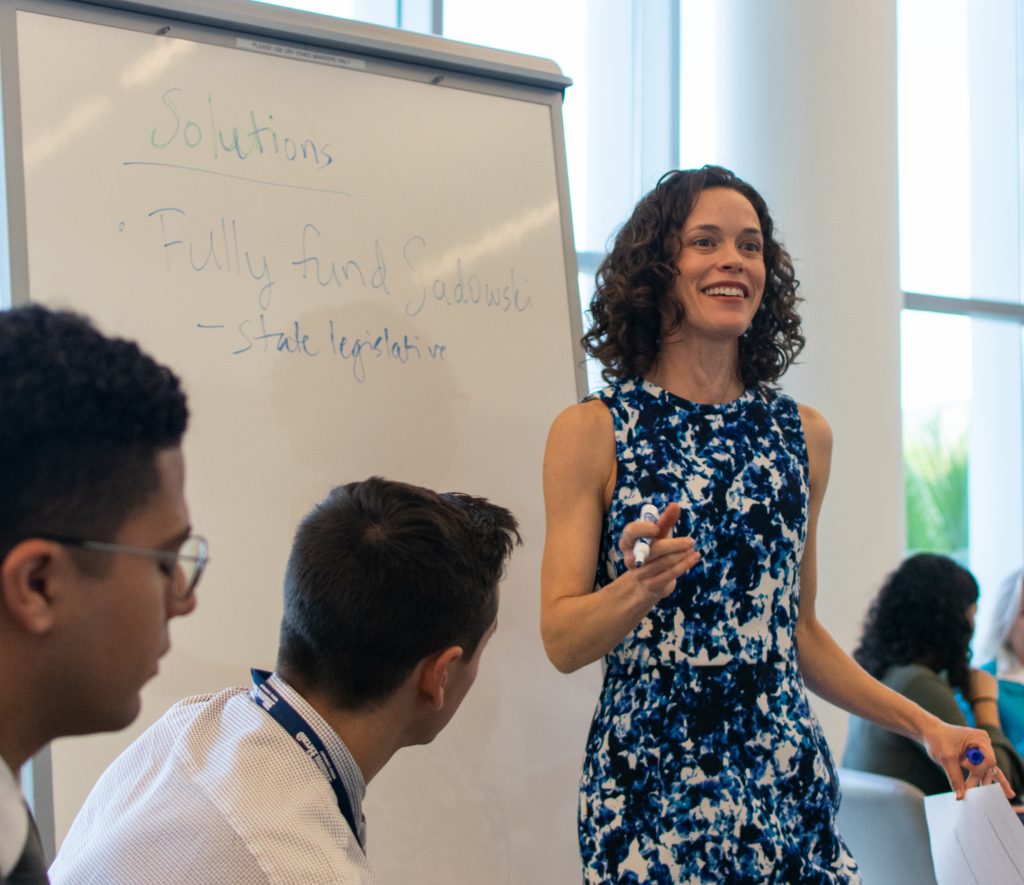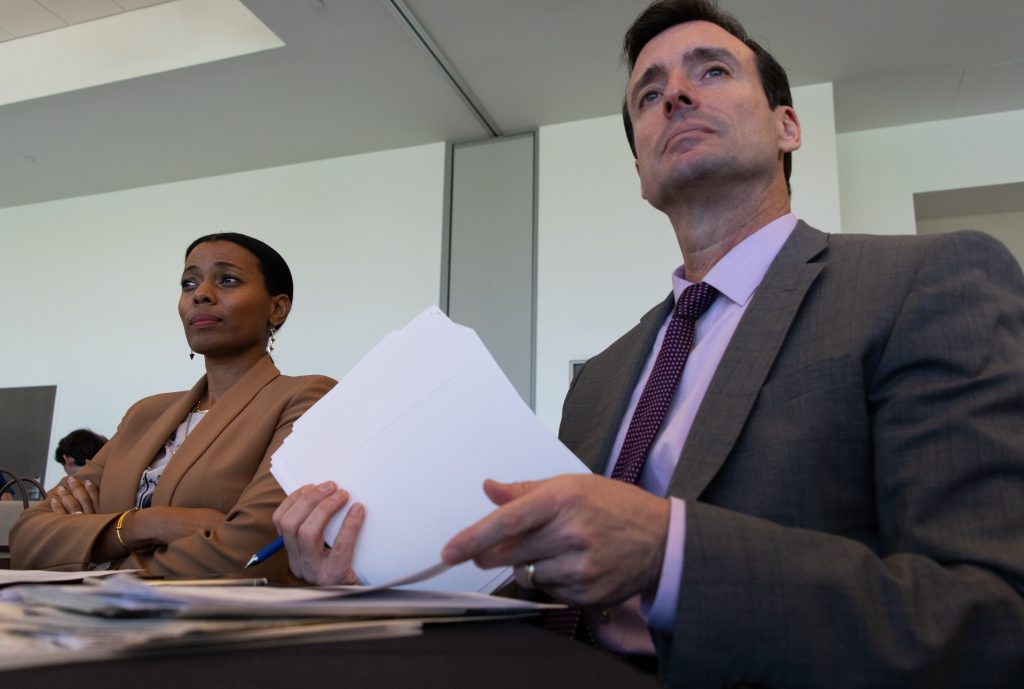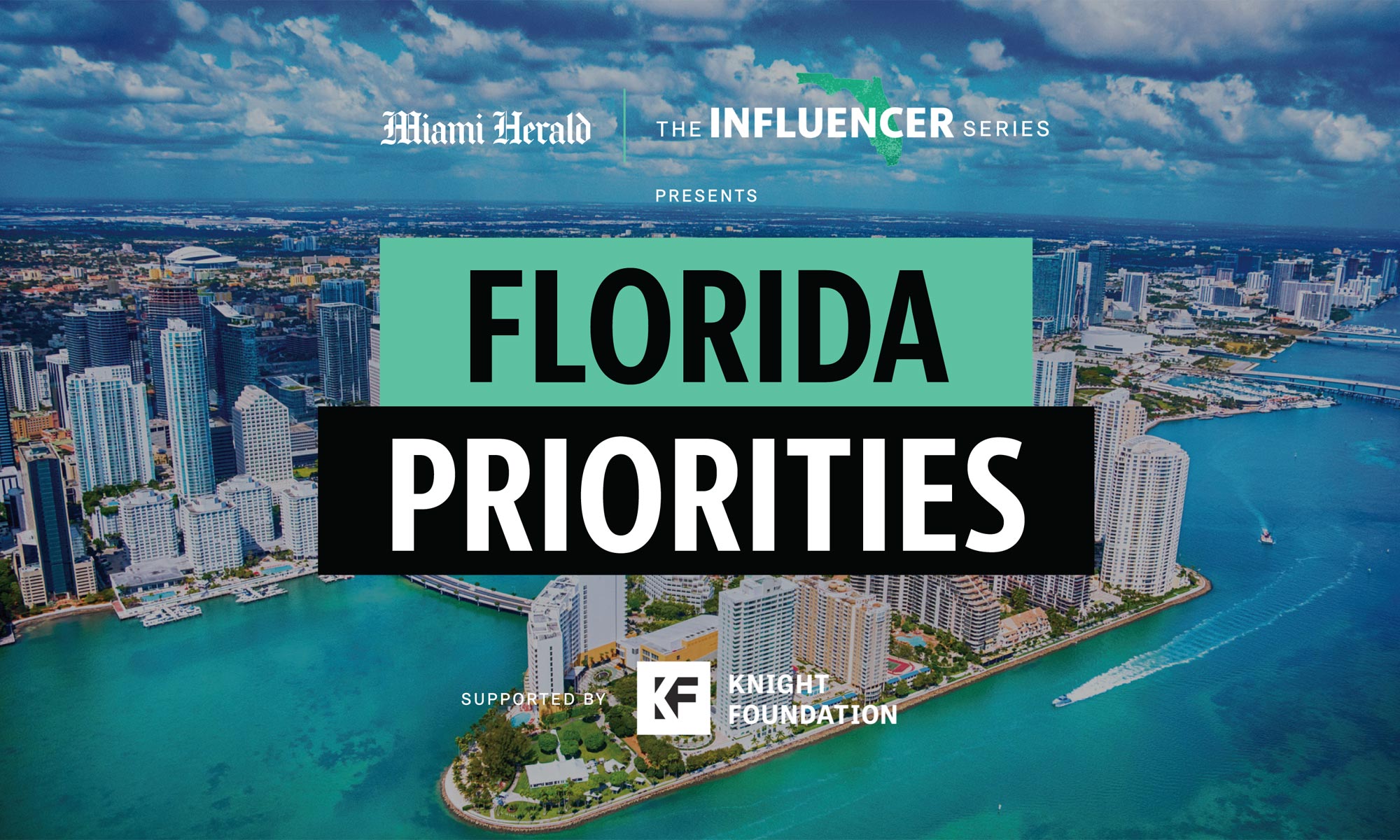
By Jonah Hinebaugh
University of South Florida – St. Petersburg
A survey conducted by the Miami Herald found affordable housing for working-class Floridians ranked the least important issue among statewide business leaders and policy makers.
The survey asked a group of 50 Florida Influencers assembled by the Herald to rank, in order of importance, five issues: housing, transportation, the environment, education and healthcare.
Thirty percent of the Influencers listed environment as the No. 1 most important issue, followed by education at 23 percent.
According to Miami Herald Senior Editor Dave Wilson, it’s important to keep in mind housing overlaps with different issues such as the environment and economy.
“Sea level rise is a housing threat,” Wilson said. “It’s a housing threat, not only in affluent [areas]. We think of waterfront property as affluent, ritzy property, and in many communities it is, but in many parts of Florida, it is not.
“There are many fishing towns. Some of them got blasted by the hurricane last year in Bay County that may never recover.”
Wilson worked with a group of four Influencers at the University of Miami’s Donna Shalala Student Center on Monday, Nov. 18, to better plan possible solutions to housing problems, which will be presented to the Florida Legislature.
Annie Lord, executive director of Miami Homes for All, served as the chairwoman for the working group. She echoed Wilson’s notion of affordable housing’s ties to multiple issues.
“The market is not creating the housing stock that our residents, and our economy need,” she said.
On Tuesday, Nov. 19, the Influencers presented their conclusions and proposed solutions to the public during panel discussions.
The events are part of the second annual Florida Priorities Summit, which aims to start a dialogue about pressing issues facing Floridians.
As of July 2018, there are approximately 23.1 million people living in Florida.
Of those, nearly 800,000 renters are “cost burdened” — meaning at least 40 percent of their income goes to paying rent — according to the University of Florida’s Schimberg Center for Housing Studies.
Cost-burdened renters account for 30 percent of the rental market in Miami-Dade County, with Pinellas County only two percentage points behind.
“When you think about housing, it’s not just affordability at two levels — low income housing, housing for everybody, or affordable housing, for people who are above [or] well above the poverty line,” Wilson said.
“But our teachers, nurses or other healthcare professionals, firefighters, police officers, government workers … either there isn’t sufficient housing for them, or there isn’t sufficient housing for them that they can afford.”

In addition to Lord, the affordable housing group was made up of Kerry-Ann Royes, president and CEO of YWCA Miami; Rev. David Swanson, pastor at the First Presbyterian Church of Orlando; and Wifredo Ferrer, executive partner at Holland & Knight.
The groups main solutions included utilizing 100 percent funds from the William F. Sadowski Affordable Housing Act. The housing act, adopted in 1992, created two trust funds meant to support affordable housing at the local and state levels through taxes on real estate transactions.
The funds are constantly swept to the general operating budget or for hurricane relief. Between 2008 and 2017, only $578.5 million of the $1.9 billion actually went to housing, according to the Miami Herald.
“What tends to happen is they make big proclamations about this year we’re not going to [take funds out],” Swanson said. “Then they get down to the end and try to make things balance and, in my opinion, I think they think it’s easier to go ‘We’ll just go [take funds] here and make it all happen instead of having to actually do more work.’”
The group also came up with a list of “creative incentives” to help stimulate the market such as changing the narrative of affordable housing to “make it sexy,” amending an upcoming Florida House housing bill and putting an emphasis on public-private partnerships.
“We’ve pursued some affordable housing in the past,” Royes said. “And what we’ve heard is the appetite is changing in the neighborhoods. There are neighborhoods that are like, ‘No more. We get what you’re trying to do, but not in our neighborhood.’
“It’s changing that language, I think and helping neighborhoods to understand who we’re serving, why we’re serving them and making it not just housing but mixed use developments.”
The difficulties of providing affordable housing only grew earlier this year when the state Senate passed House Bill 7103.
According to the Tampa Bay Times, the bill would require incentives like bonuses or waived fees to offset any additional developer costs if a developer sets aside a certain percentage of units for residents with low incomes.
The bill also imposes a 30-day time limit for counties or municipalities to review an application for a development permit.
“Fifty-eight percent of the Influencers said that that bill was a legislative overreach,” Lord said. “It was very limiting to local government where you have a lot of solutions being driven.”
“Affordable housing is a localized issue, they said, and decisions need to be
made by governments close to the communities,” Lord wrote in the housing working group report.
The Influencer group suggested amending the bill to encourage negotiations with cities and counties for appropriate time limits for permits. The group also recommended striking language requiring affordability incentives to “fully offset” the cost of affordability, according to Lord’s report.
Swanson thought partnerships with private organizations could help provide more than monetary aid.
“I feel like there’s a moral imperative for how communities are called to take care of their citizens,” he said. “We are not playing into it well. We should create more public, private, faith community collaboration that generates funding because of an inherent generosity that exists within any given community.
“I think we all acknowledge that taxes don’t go far enough to do everything that needs to be done on any given community,” Swanson said.
“In the faith community, you’ve got a ready-made audience in Orange County and 400,000 people who would be willing to step in and help serve in these gaps, but we’re not doing anything to mobilize them to create the necessary pressure for legislators to do the right thing. Instead of doing things that serve themselves, what are we doing to serve people who are really in need?”
